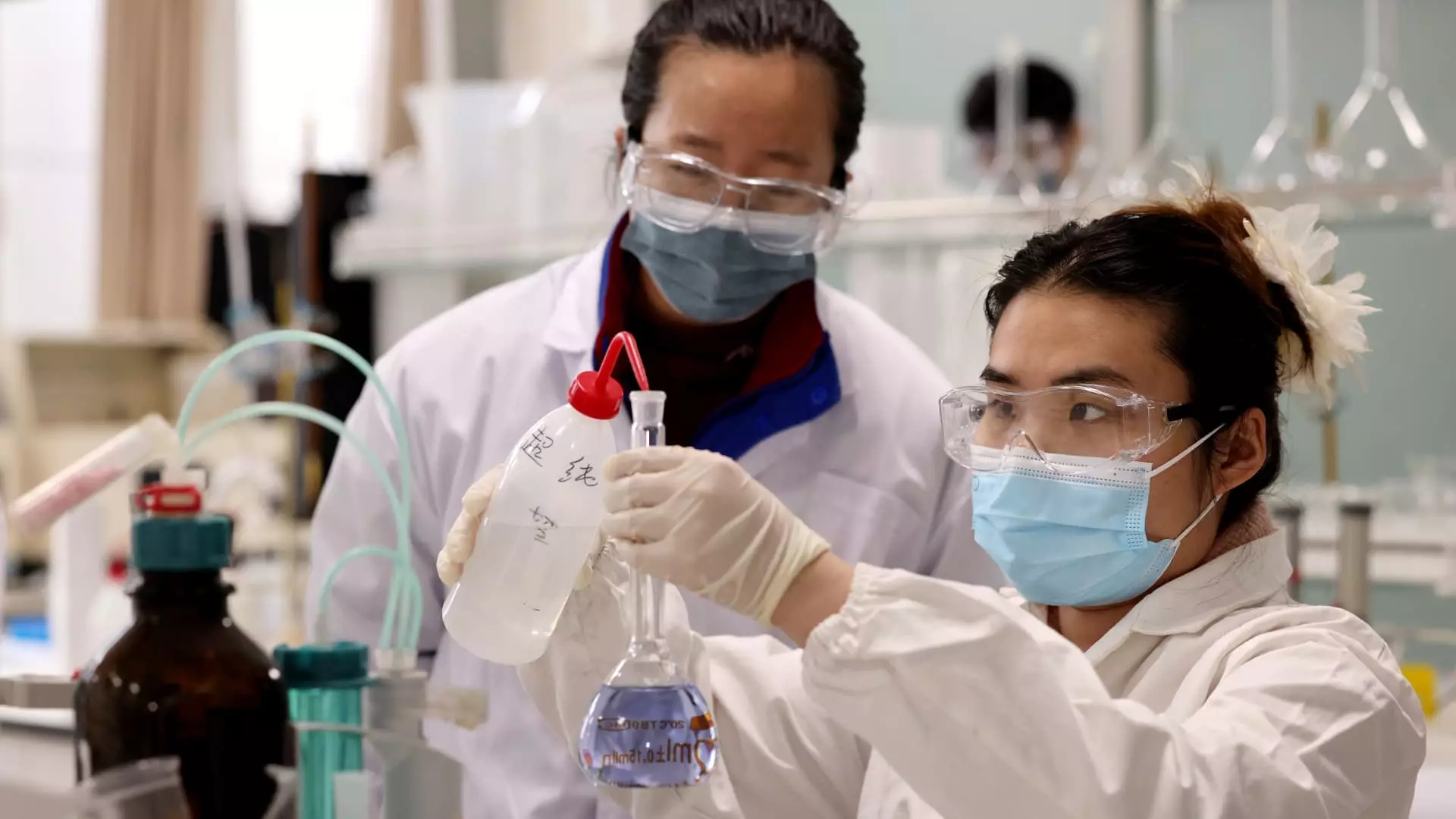In a world increasingly divided by geopolitical tensions, the once-clear lines of competition have become blurred, especially in the realm of technology. Surprisingly, while the American narrative has relentlessly fixated on the rising Chinese challenge in artificial intelligence, it has largely overlooked a more insidious threat: biotechnology. Recent studies, particularly the “Critical and Emerging Technologies Index” put forth by Harvard’s Belfer Center for Science and International Affairs, indicate a looming biological renaissance in China that could alter the balance of power globally. The report specifically highlights biotechnology as an arena where China could eclipse the United States. Such an assertion prompts a compelling question: Could this be America’s next “ChatGPT moment”? If the U.S. doesn’t act swiftly, the ramifications could be severe.
Breaking Boundaries and Building Momentum
China’s meteoric rise in the biotech sector isn’t mere conjecture; it’s backed by a well-coordinated strategy involving state support, financial investment, and a rapidly evolving talent pool. The U.S. might still lead across various critical tech sectors, but the narrowing gap in biotechnology is a warning sign. Once the sole bastion of innovation, U.S. supremacy is under siege. With pharmaceutical giants like AstraZeneca pouring billions into Chinese biotech, the West must grapple with the fact that the very technologies previously deemed as Western-owned are now teetering in favor of an aggressive Communist regime. While America boasts a rich history of groundbreaking research, it risks complacency that could become its Achilles’ heel.
Innovation vs. Regulation: A Double-Edged Sword
One glaring issue hampering U.S. biotech advancements is its entangled regulatory landscape, which too often favors a cautious dogma over the aggressive push required for meaningful innovations. Cynthia Y. Tong’s insights illuminate the contrasting realities of regulatory flexibility in China versus the cumbersome approval process in the U.S. This regulatory disparity creates a fertile ground for competition, granting China a speed advantage that U.S. companies struggle to replicate. The Chinese model, underpinned by active government involvement and rapid execution, allows for faster commercialization of breakthrough therapies — a clear edge that American startups and firms cannot afford to ignore.
Heart of the Matter: Funding Challenges in the U.S.
The implications of this growing chasm are dire. The U.S. National Security Commission on Emerging Biotechnology has issued an urgent plea for the government to revamp its strategy to elevate American innovation. The proposed allocation of $15 billion over five years to bolster the domestic biotech sector is essential, yet it remains a painfully modest response to an escalating global competition. As China nurtures its biotech ecosystem with tailored policies and incentives, American firms are left grappling with layoffs and financial insecurity. If the momentum of U.S. biotechnology wanes, it won’t just be a loss of economic capital — it will be a catastrophic blow to national security as well.
Global Commerce: A Competitive Equation
Globalization complicates this formidable contest. While U.S.-based companies can still harness the vast resources available in matriarchal economies like China, they do so at the risk of undermining America’s strategic autonomy. The cooperation model exemplified by startups like Insilico Medicine serves as testament to this conundrum, where innovation transcends national borders but at a price. By relying on a global talent pool and divided regulatory frameworks, companies worldwide will exploit cheaper and faster resources in China. This “biotech marketplace” can strengthen China’s hand, giving it a decisive edge that may disproportionately benefit domestic Chinese firms over their U.S. competitors.
Future of Governance: A Call for Strategic Alignment
As the bilateral relations degrade, the prospect for collaboration erodes. Eric Rosenbach’s observations resonate — the possibility of fostering mutual growth between the U.S. and China seems nearly a fantasy. For innovations that characterize biotechnology and AI, the stakes are alarmingly high. The risk of Chinese dominance must no longer merely serve as a talking point in policy debates but be recognized as an existential threat that demands immediate and cohesive action. By failing to develop a robust national strategy that encourages innovation while simultaneously maintaining a competitive edge against an increasingly aggressive China, America risks condemning itself to a future dictated by its competitors.
With biotechnology standing at the precipice of a transformative era, complacency is not an option for the United States. Immediate and strategic responses are essential to regain control over a narrative that is swiftly shifting, threatening to make the nation’s once-guaranteed position a relic of the past.


Leave a Reply